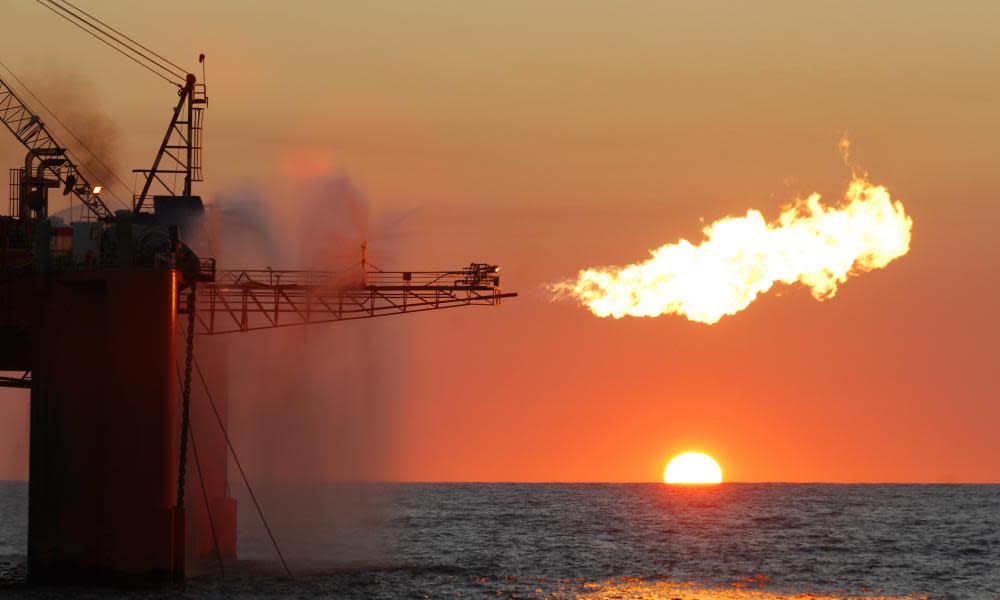Tax justice advocates urge Senate to push for fair take of oil and gas revenue

Tax justice advocates have intensified their lobbying efforts with key Senate crossbenchers before the release of recommendations overhauling the petroleum resource rent tax (PRRT) to boost revenue collections for the government.
The lobbying comes as debate is scheduled to resume on the Turnbull government’s company tax cuts in the Senate on Wednesday.
In the lead-up to that debate the Business Council of Australia has taken out prominent advertisements in Australia’s tabloid newspapers urging all senators to pass the tax cut package in its entirety.
Members of the Tax Justice Network, who have been warning that Australia is set to blow another resources boom because the PRRT is failing to collect adequate revenue, have been lobbying senators in Canberra this week.
Advisers to Pauline Hanson’s One Nation requested a briefing on Tuesday, while the Nick Xenophon Team, senators Jacqui Lambie and Derryn Hinch, and the Nationals senator John “Wacka” Williams are scheduled to meet the group on Wednesday.
The PRRT review is due to hand its report to the Turnbull government by Friday. The treasurer, Scott Morrison, had wanted the report in the preparation for his May budget, which is just six weeks away.
When Morrison announced a formal review of the PRRT in October last year he warned of a rapid decline in revenues from the tax.
He said PRRT revenues had halved since 2012-13 in Australia, while crude oil excise collections had fallen by more than half.
“There have been no changes to the PRRT since 2012 and we think it is timely that these matters be addressed, and be addressed in time for these matters to be considered in the preparation for next year’s budget,” he said at the time.
“It is actually not primarily about revenue. It is important these companies pay their fair share when it comes to these issues.”
Jason Ward from the Tax Justice Network said the Senate’s crossbenchers were increasingly aware of the notion of an energy crisis in Australia, with a looming domestic shortage of liquified natural gas, while the country was on the verge of becoming the world’s biggest exporter of LNG, with the government unlikely to get anything for its resources.
“So how do you square having a domestic energy shortage with being the world’s largest exporter with no revenue?” he said. “It’s a situation that needs to be addressed.”
According to the Treasury, in 2005 the government collected $1.9bn in PRRT and last year that figure fell to $1.4bn.
PRRT revenue is estimated to fall again – to just $800m – when Australia becomes the world’s dominant LNG exporter by 2021.
In a submission to the PRRT review, Dr Diane Kraal from Monash University said flaws in the PRRT regime meant Chevron’s giant Gorgon gas project off WA would not pay the tax until “at least 2030”, despite decades of operation.
She said her modelling showed $5bn in revenue would be raised from Gorgon by 2030 if royalties were reintroduced.
Michael Callaghan, a former Treasury official and former chief of staff to Peter Costello, has been heading the inquiry. Its report is due to be handed to the government by Friday, and the government is expected to release the report any time from next week.
The consultation period ended in February but Guardian Australia understands it accepted late submissions.

 Yahoo News
Yahoo News 
